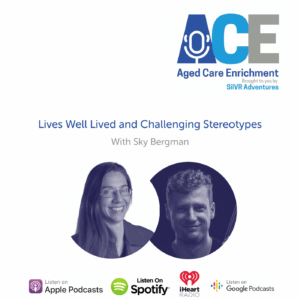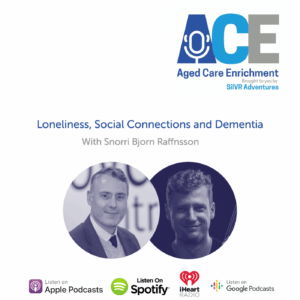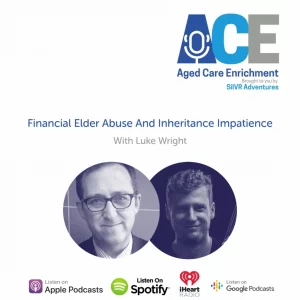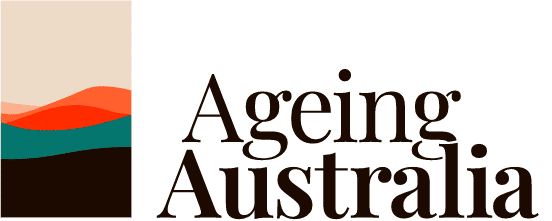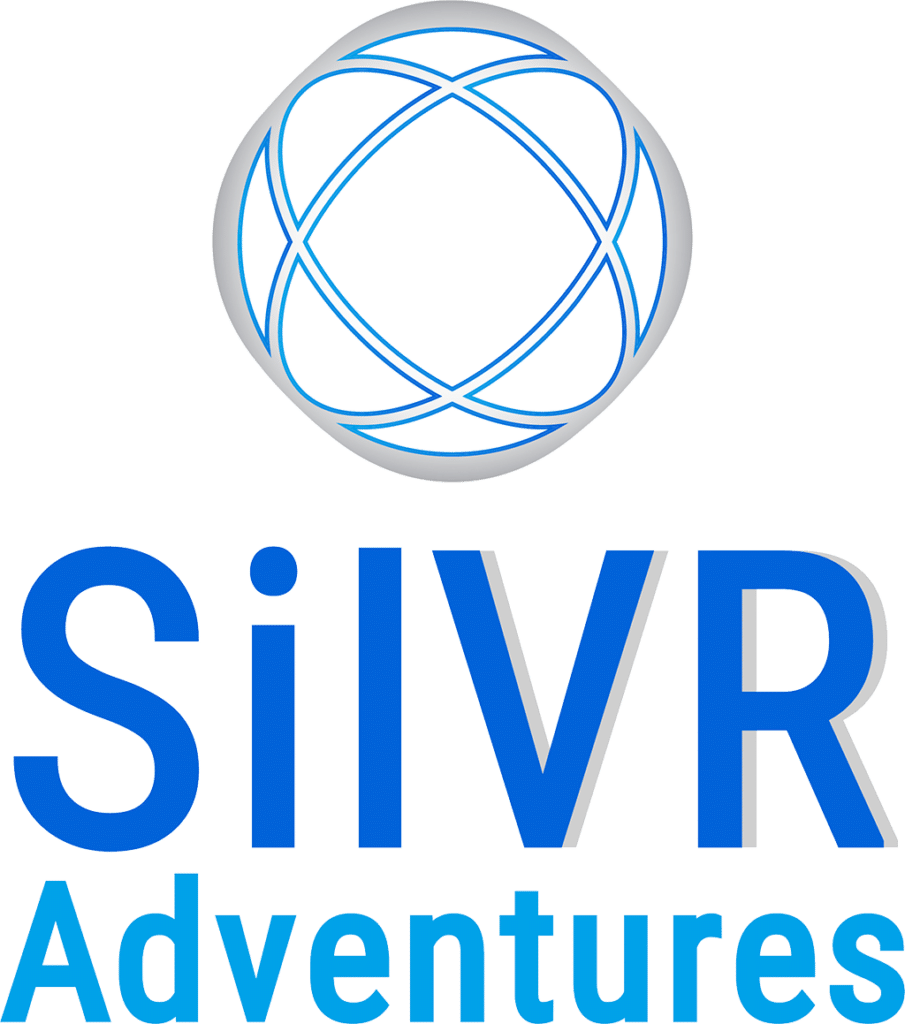Robi Roccella is the Head of Quality of Life at HC-One, the UK’s largest Aged Care Provider. With a background in the aged care and disability space in both the not-for-profit and for-profit sectors she has a great overview of elements that make up a truly supportive and enabling care program.
In this conversation we have an in-depth look at what is quality of life and why it should be central to any care program, embracing and adapting to pandemic-led changes and what does it take to be a leader in the aged care industry.
If you enjoyed this episode you might also enjoy our conversation with Karen Lake from New Zealand’s Ryman Care.
Transcript
Ash de Neef: Thank you so much for joining us Robi on the podcast.
Robi Roccella: Thank you for having me very excited to be here today.
Ash de Neef: Can we start with a little bit of your background and your story?
Robi Roccella: Absolutely. So I am coming from a health and social care background.
I actually studied economic history at university for my first degree, and then I started to study psychology. I wanted to become a pet therapist at the time, and during my first year of my secondary degree in psychology, I went to do some voluntary work in a scuba diving centre in Turkey, and it was a scuba diving centre for people with profound disabilities, physical and mental disabilities.
And I went there as a volunteer for a couple of weeks, and I just absolutely fell in love with the concept and the idea of supporting people to live and experience a good quality of life and very much doing something, especially with regards to scuba dive in is still considered to be quite an elite sport.
So being able to support people to do scuba dive and breaking the boundaries of disability is something that very much changed me as an individual. So I went back to Italy and I looked for a position that could actually support me in developing my career in this way, and I was successful in applying for the position for setting up an advocacy project for people with profound disabilities in the UK.
And in 2003, I relocated to the UK, and set that up for this advocacy project, which was managed by the largest charity for people with learning disabilities in the UK Mencap. And I worked in that position for five years and I absolutely loved it because it was an opportunity to really support people, to say what they want and to have choice and control over their care and their life and something that very much shaped me professionally and also personally.
So that is very much the beginning of my career, and I feel very privileged that I have that foundation. I then worked in a number of different roles. I work for the local authority as assistant social worker for children with complex needs. And then I worked in a number of operational roles, I set up two different services an empowerment service that supports people on transition, people with disability on transition from children to adult services.
I set up the domiciliary care service for people to be living independently in their own homes. And then it’s was the backend of my career and the last seven, eight, nine years, I started to focus on quality, something I’m very passionate about. So I had a number of roles as a regional quality manager, and then head of quality for the North of England and Scotland, and sort of large provide that in the UK and then head of quality and governance.
And then a year and a half ago, I joined my current employer HC-One as a head of wellbeing initially. And then from January this year as a head of quality of life. Head of quality of life is the most exciting job title I ever had because the emphasis on people’s, quality of life is something that for me is very transformational is really bringing the perspective back onto the individuals we are supportive regardless of their age and abilities. So something that I couldn’t be more excited to do.
Ash de Neef: Fantastic. And it sounds like going right back to your time, teaching scuba diving that quality of life has always been something that’s quite a strong passion for you. What does it mean to you? What is quality of life?
Robi Roccella: That is the question of the century, Ash.
So what does it mean quality of life? Well, I think quality of life means something different to all of us. We are all different individuals where we will have a different story, different preferences, different wishes. So quality of life is very subjective. However, quality of life is equally as important to all of us, because obviously it is very much at the heart of living a fulfilling life of experiencing happiness and satisfaction.
As we were defining in our company and trying to find a definition for quality of life, our approach was very much asking the people we are supporting, “what does quality of life mean to you?” We did a three months pilot before designing our wellbeing program, which is all around promoting stimulation for the body, the mind and the soul of the people we are supporting and very much trying to identify meaningful activities and meaningful interactions that can actually enhance the experience of care and the quality of life for the people we are supporting.
So our residents came up with a definition whereby quality of life is about experiencing a sense of happiness and satisfaction by being able to do things that make us feel good. And I think that that’s a good the definition because that sense of feeling the experience it’s very much at the heart of living a fulfilling life.
And it’s interesting because as we were going through the process of defining our own definition of quality of life, we realise that it’s not dissimilar to the definition that Age UK. Age UK is the largest charity for older people in the UK, and they provide a very similar definition between quality of life [and] well-being as being very similar terms that they’ve got in common. That sense of pleasurable life, that sense of independence, that sense of choice and control over what we want to do.
Ash de Neef: Fantastic and HC One is the largest aged care provider in the UK with 328 care homes. That’s a lot of residents, a lot of clients to work with and a lot of different interpretations of quality of life.
As head of quality of life, how do you approach that challenge?
Robi Roccella: It’s a very, very good point. I think the first point for me is always putting into perspective back onto the individual. So you’re right we are operating across the UK in Scotland, Wales, and England, so obviously there are national legislation and requirements that we need to adhere to.
We are regulated by three different regulatory bodies therefore our approach it to quality will also need to meet the regulatory requirements. However, I think it’s very important that the concept of quality goes back to the individual and to what quality of life and quality of care means to them.
And I think that the way in which we are approaching this by providing a range of different services, from residential to nursing, from memory care to specialist care. But the approach that we have is very much working with the local area team, which are obviously aligned to the different geographical location across the UK.
I think that that is enabling our company to work in collaboration with the commissioner, in collaboration with the regulatory body, in collaboration with third parties and organisations. That for me is incredibly important because obviously when people are moving to a care home, they still want to maintain those links with the community, which are very important in terms of maintaining people’s identity.
So you can imagine the difference between Scotland, Wales, and England, there are lots of wonderful variation. I think maintaining also the identity, the cultural richness of our horizons is so important and so vital for their well-being and their sense of happiness.
So I think overall, I actually find that there is quite a rich process going to be able to deliver care in three different countries, because we got the opportunity to adapt our approach to care, and very much to still maintain the focus on the people we are supporting. So ultimately it’s what quality means to our residents, and quality means to us as a provider and then very much adapting into the regulatory requirements across the three countries.
Ash de Neef: It sounds like you’d have to apply, the definition of quality of life as you said, across the country but then within that, within the region of a specific country, I know the UK and England, Scotland and Wales are very diverse regions within them. And then of course to the individual and their wants and needs.
It’s a complicated balance – or it sounds like [one].
Robi Roccella: It is a complicated balance, certainly, but at the same time, I think that the way in which I want a company is operating in that structure, operational and quality structure is actually then enabling those relationships and that connection that is then very much and localising the support and care specifically to the country that we are operating in.
So it seems probably more complex than it is and I think some amazing example on a day-to-day basis of those relationships and those collaboration and key partnerships, delivering at the end of the day, the best outcomes for the people we are supporting.
Ash de Neef: Can you give listeners, uh, an impression of the sorts of things that come under quality of life?
The sorts of areas that you’re looking at?
Robi Roccella: Absolutely. So when we’re thinking about quality of life and we are thinking about resident’s wellbeing the primary approach is very much about designing and co -producing with the individual that we are supporting activity plans, lifestyle plans, that are going to enable them to maintain that independence express choice and control over their care and support but on a day to day basis.
Feeling that they got something meaningful to do, the people still can maintain their hobbies, their pastimes’. and also deliver new interest in developing new relationship.
I’m a very passionate believer that that is still a quite negative perception about our sector across the society, and I it’s something that very, very much upset me.
Because I’m a great believer, and there is so much positivity that comes from moving to a care home. Of course it’s a difficult process, of course, perhaps the people will not necessarily be choosing to move to a care home, but at the end of the day there are so many positive sides.
If you’re thinking about the impact of loneliness and isolation, their effect in our society, the ability to actually live in a community and the ability to be supported to maintain your independence and still being able to take part to your hobbies is still something that for me is incredibly incredibly important.
So our lifestyle plans, our wellbeing plans are very much building from the life story, from the wants, the wishes of the people we are supporting. We are very much, as I said before, providing the stimulation for the body, mind and soul. So activity that can stimulate the body, mind and soul such as obviously keeping fit, a mindfulness, Tai Chi or any activities.
For example, these are evolving around the common interest, such as clubs. You know, people are coming from, for example, having enjoyed gardening or, having enjoyed photography, or having enjoyed any sort of activity that then they can share with other people as they are living in our services.
And very much, we are also promoting that there are different type of activities. So I think we are moving away from a bit of a traditional and an old fashion idea, of having a lot of residents having to take parts to the same group activity.
That is for me, very, very old fashion, and we added promoting that there are different type of activities.
So social activities of course are important, you are sharing hobbies and passion with people who are like minded, but they’re not activities that people like to do in their own time. And those are equally as important. So we are promoting, self directed activities, encouraging people to pick up hobbies in their own time and enabling them to do so, as well as promoting everyday of a occupation.
So actively encouraging residents to take part to any activity of everyday living from active management of their care homes you know, we’ve got residents who are actively involved in gardening, maintenance, in supporting our kitchen teams. And that is so important in maintaining people’s independence and giving them a sense of fulfilment.
Ash de Neef: I like the idea that instead of aged care homes, becoming a place where things are done for people, things are done together with the residents and it’s a community that is contributing to itself.
You mentioned something there that’s quite an interesting question, that’s come up a lot throughout these conversations for this podcast, the idea that aged care homes are not often some way that people look forward to going to. Do you think it’s possible to change that perception?
Robi Roccella: Absolutely yes. And I think we need to be very united in our sector. That’s why I’m a very positive and very enthusiastic person. So I I’m a great believer in celebrating good quality of care, whether it’s delivered by our company, whether it is delivered by other providers. At the end of the day, we had an ear for the same aim and for the same reason.
And I think by working together and by together raising the profile of our sector, we can actually challenge that negative perspective. I think one of the positive things that has come out of the pandemic is a wider recognition for our sector and the value they bring to society and the value they bring to some of the most vulnerable people in our society.
So going back to your original question Ash, I generally believe that we can challenge that perception. And I think it’s down to us to be able to outline and share and celebrate the good example of care and good example of quality of life that takes place on a day to day basis in a number of care services and aged services.
And you’re right, I’m a great believer of that the moment in which residents are moving to a care home, that is probably the most difficult and most emotionally challenging time for themselves and for their loved ones. And I think that that is so much of that can be done to actually positively challenge that perception, but also soften and humanise that, that process that very much outlines the badges[?] and the benefits of living in a care home.
Ash de Neef: Hmm.
Now, how is HC one proving itself as an innovator within the aged care sector?
Robi Roccella: Well, for me, one of the things I’m particularly excited about is the fact that as a company, as a large provider, we are very much focusing on the importance of quality of life.
Now, person centered care and the focus on the individual is something that has been around for 20, 30 years, however, I think it’s fair to say that across the sector, there is still a perception of a clinical model of Care.
So people are, they’re moving to care homes because they got care and support and health needs, and therefore we are defining the support around those clinical needs and requirements. So for our company to actually want to invest on quality of life and very much having invested in a position like a head of quality of life and developing our quality of life team, for me that is very much representing innovation, because it brings the perspective back onto the people we are supporting.
And quality of life for me is not just a nice thing to do, it’s very much a must do. And not only for the benefits that they has on the individuals that we are supporting, but also for the benefit that it has on our business as well. Ultimately if I had to move to a care home, or if my family, any of my loved ones had to move to a care home, I would want to move to a care home which heavily focuses on quality of life.
So I think we are an innovator in that sense. We’re also an innovator in terms of we are embracing technology and value based technology. So technology that can benefit our residents and they can give and drive better outcomes for our residents.
So at the moment, and again, driven by the pandemic, So that’s one of the positive side of this very challenging event is obviously being impacting on our society globally. Is the fact that we’ve been looking at alternative ways and innovative ways all the still stimulating the resident wellbeing, still enabling people to live a fulfilling life as much as possible at a time when obviously so much of the interaction with visitors and third-parties has been impacted by the lockdown and the restriction of the pandemic.
So we are looking at the moment, for example of introducing functional exercise classes, activity and sports activities classes via zoom. We have been partnering with a company that is providing physical exercise for older people, and we will be delivering those classes via zoom, something that six months ago for us we wouldn’t even be considering
We also see a number of innovative ways of still maintaining that connection and links with the community. And we have some amazing example, one of my favorites is, in some of our services, we’ve got a pet therapy services where pets go into the homes and provided that very important stimulation for the resident wellbeing.
And we’ve been revising that approach, and we’ve been delivering that again via zoom and the success and the benefits to the residents has been absolutely incredible. We’re also looking at, with regards to the use of technology of the moment we’re looking at introducing e-care and e-meds. So obviously a much better way of the providing at planning and administering medication.
So that is all very exciting because for me, technology is, I said before in our sector, perhaps we’ve been lagging beyond this. So this is providing an opportunity for the digital transformation in something that our company is very much embracing.
And I think another thing that I’m particularly passionate for me is again, about innovation, we are looking at introducing musical care, and the value and the benefits of music care.
You know in a music is something that is so important for all of us, but introducing music, as part of the delivering care or support is something that can be incredibly beneficial for the people we are supporting.
Ash de Neef: You mentioned musical care. What does musical care look like?
Robi Roccella: So musical care is a very much empowering colleagues in understanding that music and not only music is enjoyable and music, meaningful music. You know, we are listening to music in all stages of our life and also when we are in different mindsets or in different moods.
So the concept of musical care is using music as a way of delivering care, personal care or perhaps supporting people as they are experiencing their dining experience or creating personalised playlist and the value of the impact that they can have on people’s agitation or sense of wellbeing and that very much in that sense of happiness and fulfilment.
So it’s something that we are a bit excited and we are working with a company in the UK has been doing some amazing work around the musical care. So we will be launching a pilot across some of our homes. So it is three months of the course delivery verification at the end of it. And we cannot wait to evaluate the benefits of musical care and the outcomes that they are delivering for our residents.
Ash de Neef: Hmm, that sounds very reminiscent of a conversation I was having a few weeks ago with Karen Lake. Karen has a similar position to you, Robi. She works in Ryman healthcare in New Zealand, one of the large providers there. And she was talking about the reminiscence bump, a period between 20 and 30 years old, where you form a lot of memories and using music as a trigger to bring people back to those years in their later years.
Robi Roccella: Absolutely. I mean, I don’t know if you’re familiar with the work that the Oliver Sachs, who unfortunately passed away a few years ago. He did this amazing piece of work on the alive project. And basically it was looking at how to use music to actually bring people back to life, the memories and their ability to really gain better control of that language and their memories.
And there is this amazing documentary that is revolving around that this gentleman called Harry. And it is amazing to see that when the right music is played with him, he comes back to life and something that I could not recommend anybody more to listen and to watch because it’s truly transformational.
So I [will be] definitely checking what the colleagues in New Zealand than it is doing, because it’s something I’m particularly passionate about. And again, reminiscence, It’s got such an important part in particular for our residents living with dementia. But not just for them, reminiscing is so good for the mind and the soul and something that is very much at the heart of our quality of life proposition.
Ash de Neef: Mm yeah, I could talk about music all day, but we should, we should change the topic a little bit. Now you’ve mentioned the pandemic, of course, we’re recording this and the September, 2020 and the pandemic is affecting most of the world and the UK, it’s certainly being felt as well as in Australia, and aged care homes in both countries arebeing affected by the pandemic.
What are some of the challenges? I know you mentioned the integration of technology a bit better. What are some challenges that you’re hoping the industry can meet as a result of the pandemic?
Robi Roccella: So I couldn’t agree more. I mean, the pandemic had a huge impact on all of us individually, on our society, on our sector certainly.
I mean, I sometimes think about how life was different just six months ago. And I think some of the challenges for me being very much in relation to having to respond.
So to be operating on a response mode, so very much on a very fast pace. Having to adapt to a situation that was unprecedented and as such, we didn’t have anything to compare it to.
So that was one of the biggest challenges. And certainly something that, as you said, the lockdown not being able to welcome, residents’ loved ones, the entertainers and everything that is usually parts about what day-to-day life, parts of our activity program had to be completed transformed and revisited.
But at the same time, there have been some, and obviously the pandemic has not just affected our residents it has also affected our workforce, our colleagues, and the loved ones as well.
However, I genuinely believe that there have been some positives that have come out of the pandemic. For example, I’ve been incredibly inspired by how the teams in our homes have been working more, embracing and promoting the whole home approach.
So very much getting together and very much having to support each other in delivering care but also enhancing the quality of life of the people we are supporting. Now the whole home approach is one of the principles of our well being program.
So it’s very much going back to what I was saying earlier on, it’s about relationship-based care. So for all colleagues within the home, the empowering understanding how valuable and how important their role is in enhancing the quality of life for the people we are supporting. And that is certainly something that has come out of the pandemic as a very important positive side.
I think we also learn to work in a smarter way, and also being able to adapt to change very fast. And again, that’s a benefit, that’s something that is a requirement in an ever-changing society, and ever changing environment.
And also we learn to work probably more inquisitively [?} more collaboratively. I often think, we’ve been supporting each other amongst provider, and part of the network with other providers, whereby we are regularly meeting on a weekly basis, we are sharing experiences and we are sharing resources, and that again has been particularly positive.
And we are also connecting more widely at a global level. I mean, if it wasn’t for that, I wouldn’t be here today talking to you guys. So we are connecting and that connection, that discussion and that willingness of very much promoting and anything that can raise the profile of our sector is instrumental in very much going back to what we were saying before Ash challenging that negative perspective of our sector.
So a lot of positive out of a very difficult situation. And I think the ability also to adapt to deliver activities in a different way as being quite amazing.
So I often get absolutely mesmerised by the way, in which older people are embracing technology and are responding positively to the use of technology. And I think that the pandemic has given that push to actually embrace technology in a more positive way, and that the value that you can bring that in people’s lives.
Ash de Neef: Fantastic. Now in, in Melbourne where I am, I know that there’s a number of homes where residents have needed to be isolated due to the pandemic. Has this been the case in some of the HC One homes as well?
Robi Roccella: Certainly certainly. So at the moment we’ve got local lockdown across three different countries.
So we are responding at local levels to the lockdown, the requirements that been imposed by the local authorities. And obviously that brings a number of difficult and very challenging situations. Because being part of a community and feeling part of the community, is certainly something that we all need, and certainly our residents need it too.
And that’s why going back to, where we were saying before having the opportunity of using technology to connect residents, so we’ve got a number of pen pal clubs, we got a number of networks whereby the residents within our homes are connecting and supporting each other,. But also number of great examples of our services at making links with the local community and still maintaining those links despite being in lockdown.
That for me, is what is important and very much needed. Because, you know, that sense of loneliness and isolation that when we were during the peak of the lockdown where we all experience that, that is certainly still very much a challenge.
So it’s very important that we are outlining the importance of creating those connections and making people feel that they are still parts of their wider community.
Ash de Neef: Hm. I think as you said, that one of the silver linings is an increased communication across the industry internationally and nationally as well, depending on where you are, and the only thing we can do is learn from, from our experiences and, and move forward.
Robi what does leadership in the aged care industry look like to you?
Robi Roccella: So for me, leadership is everything. But by leadership I mean leadership at all levels. So I touched before on the concept of relationship-based care and empowering colleagues at all levels, that is something that. One of my pet hates is when people say, I am just an administrator, that I’m just a carer, I’m just the wedding coordinator, but I’m just the nurse.
I find that quite detrimental because in reality, everybody in a home is equally as important, and everybody’s got a very, very important role as part of a wider jigsaw.
So leadership is required at all levels. Leadership is required to drive positive change, to drive positive mindsets and cultural change.
And I think obviously if you can imagine, as we are talking about quality of life and valuing quality of life, equally as important as quality of care. Well obviously that mindset change is very much driven by leadership.
But leadership is also about empowering people. It’s about empowering our workforce, it’s about empowering the people we are a supporting. And leadership is also about thinking outside the box.
I think we have discussed the so far the importance and the need, of thinking outside the box, which has been driven by the pandemic. So leadership is something that’s been crucial in being able to respond to a challenging situation, but also as I said before, to bring the perspective back onto people and very much empowering the people we are supporting and the people we are employing.
Ash de Neef: Fantastic. Robi, we’re almost out of time now. Is there anything you’d like to share about your work or about HC One with the listeners before we go?
Robi Roccella: I just want to say that I am very excited. I mean, I’m delighted to be able to work for a company that is embarking on to a very exciting journey where, as I said before, we want to value, and we want to deliver good quality of care and good quality of life.
And for me, good quality of care and good quality of life are two sides of the same coin and something that I couldn’t be more excited to be part of this journey and to collaborate and co-produce with colleagues, residents, and relatives, and very much a bring the perspective back onto the people we are supporting.
So very excited to be part of this and very excited to have the opportunity to talk to you guys on the other side of the world.
I love what you do and I follow you, and I’m delighted you give me the opportunity to talk to you today.
Ash de Neef: Great. Thanks so much for your time Robi.
Robi Roccella: Thank you to you guys.

